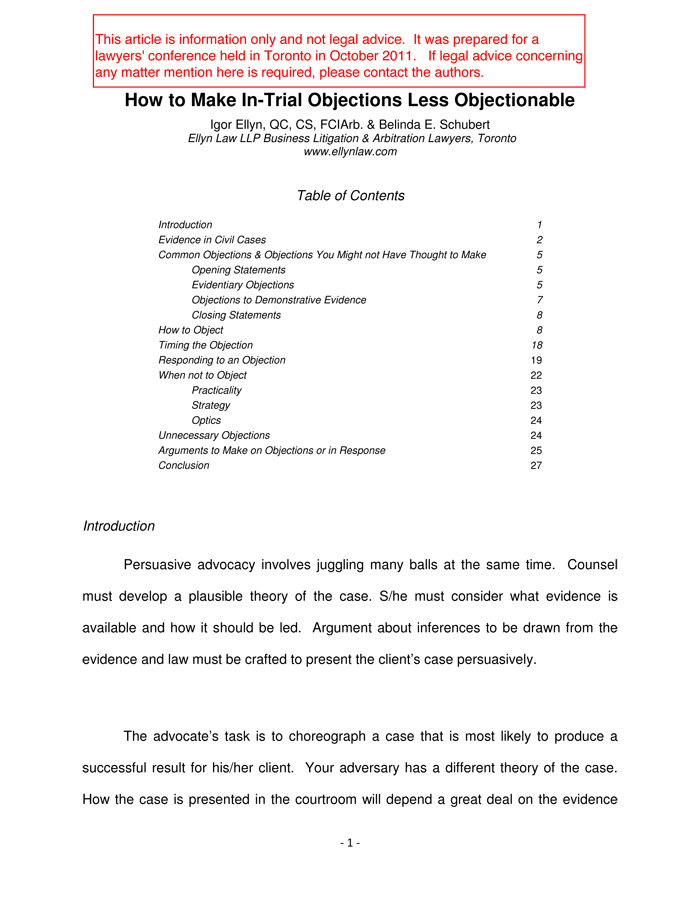Persuasive advocacy involves juggling many balls at the same time. Counsel must develop a plausible theory of the case. S/he must consider what evidence is available and how it should be led. Argument about inferences to be drawn from the evidence and law must be crafted to present the client’s case persuasively.
The advocate’s task is to choreograph a case that is most likely to produce a successful result for his/her client. Your adversary has a different theory of the case. How the case is presented in the courtroom will depend a great deal on the evidence adduced at trial. Good advocates play out the theory of their case by casting, dare we say “spinning”, the facts and evidence in the most favourable light for their client.
In this presentation, two Canadian trial and arbitration lawyers discuss this important aspect of trial advocacy. The authors are members of Ellyn Law LLP Business Litigation and Arbitration Lawyers, Toronto Canada. Ellyn Law LLP specializes in shareholder disputes, business litigation and arbitration, internet defamation and enforcement of foreign judgments and arbitration awards. The members of the firm are the authors of the Canada chapter of Libiabilities of Corporate Directors, to be published by York Hill Press in 2012. Igor Ellyn, QC, CS, FCIArb. a Chartered Arbitrator and Mediator, is the Chairman of the Business Litigation and Arbitration Practice Group of the International Network of Boutique Law Firms, www.inblf.com. He is also the author of the Canada chapter of Enforcement of Money Judgments and Shareholders Remedies in Canada.
